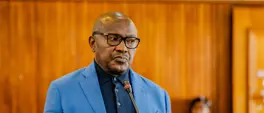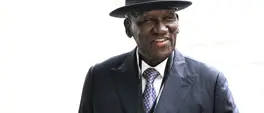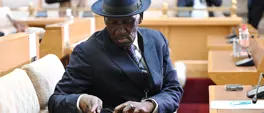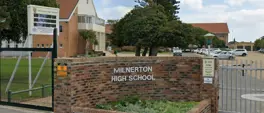Former freedom fighters' remains: Some families found out about repatriation in the media
Alpha Ramushwana
26 September 2024 | 5:48On Wednesday, the remains of 49 liberation heroes who died in Zambia and Zimbabwe between 1967 and 1990 landed at Waterkloof Air Force Base in Centurion.
JOHANNESBURG - Some families of former freedom fighters whose remains have been returned to South Africa from southern African countries said they only found out about their loved ones' repatriation on the news.
On Wednesday, the remains of 49 liberation heroes who died in Zambia and Zimbabwe between 1967 and 1990 landed at Waterkloof Air Force Base in Centurion.
This is part of government’s exile repatriation programme, aimed at returning the remains of those who died while in exile in foreign countries.
ALSO READ:
- Talks ongoing with other African countries to repatriate former freedom fighters' remains: Motshekga
- Mashatile: 'We should engrave the names of our struggle heroes in our hearts'
Kate Ramashu was watching the news on TV on Wednesday morning when she discovered that former freedom fighters buried in Zimbabwe and Zambia were being repatriated to South Africa.
She immediately thought of her son-in-law, Madoda Myoli, a former Pan Africanist Congress of Azania (PAC) member who died in Zimbabwe in 1989 after being in exile for a decade.
Ramashu said she quickly contacted a relative who worked in the South African National Defence Force (SANDF), who then informed her that her son-in-law’s remains were among those being repatriated.
“I heard it in the news this morning, can you imagine? I was shocked because Madoda Myoli’s family is there in Cape Town. Somehow, they should have told us.”
However, she said her son-in-law’s repatriation brought closure to the family.
At the same time, cultural analyst Professor Pikita Ntuli firmly believes government’s repatriation programme will bring closure to the families of liberation heroes who died outside South African borders.
Now that the government has started to repatriate some of their remains, said Ntuli, families will finally be able to perform cultural and religious rituals for the fallen heroes.
“Their spirits are roaming in foreign lands. So, for government to begin, finally after 30 years, to bring these people back is a very good move that needs to be appreciated.”
Ntuli also shared his personal experience regarding his brother, who was killed in exile in Tanzania.
He said his family is still grappling with the inability to properly conduct cultural rituals for their loved one.
Get the whole picture 💡
Take a look at the topic timeline for all related articles.
Trending News
More in Local
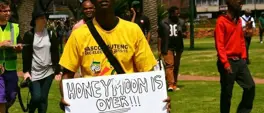
23 October 2025 17:23
Fees Must Fall a decade on: Funding crisis still plagues higher education - students

23 October 2025 16:04
KZN Premier calls for crackdown on illegal goods manufacturers after Durban raid

23 October 2025 15:47
Forestry, Fisheries and Environment Dept confirms Kruger National Park hasn't changed name



